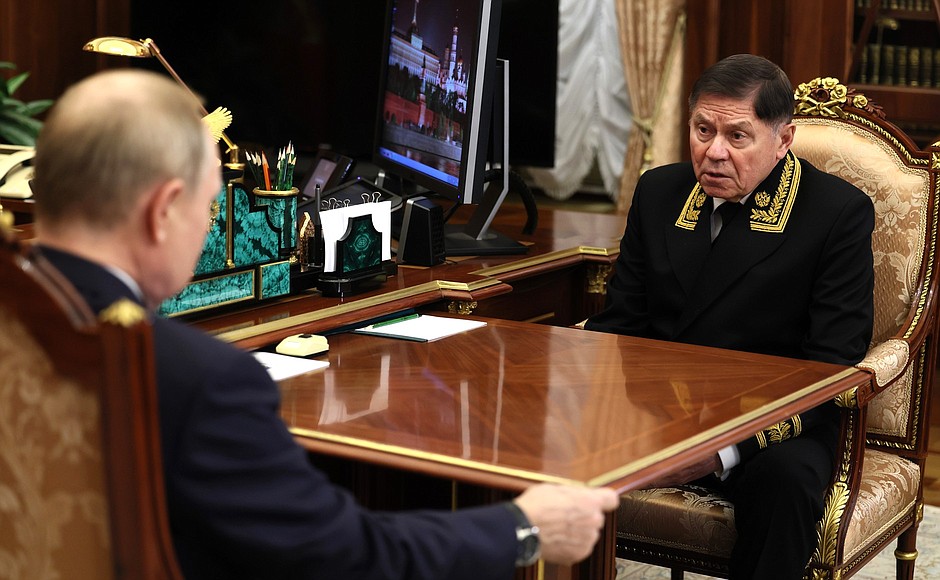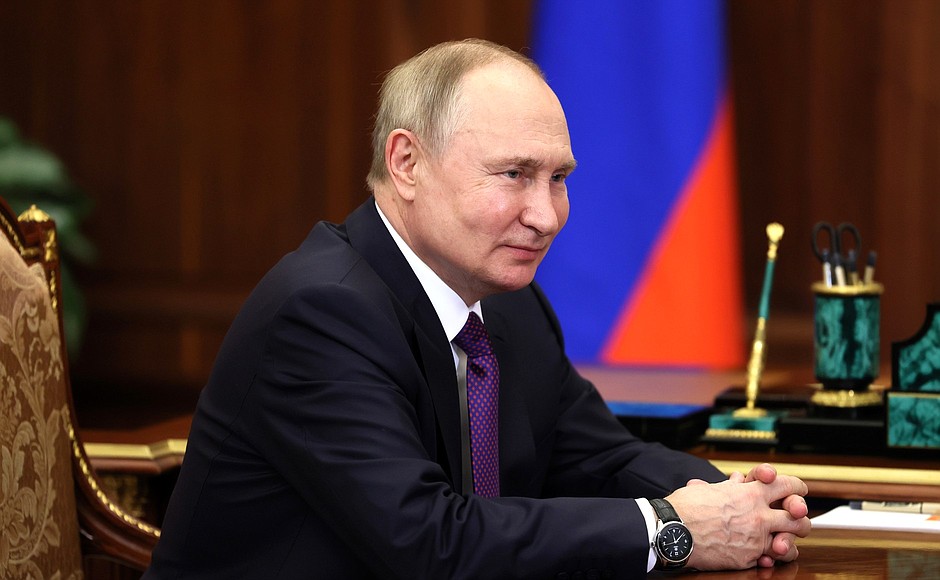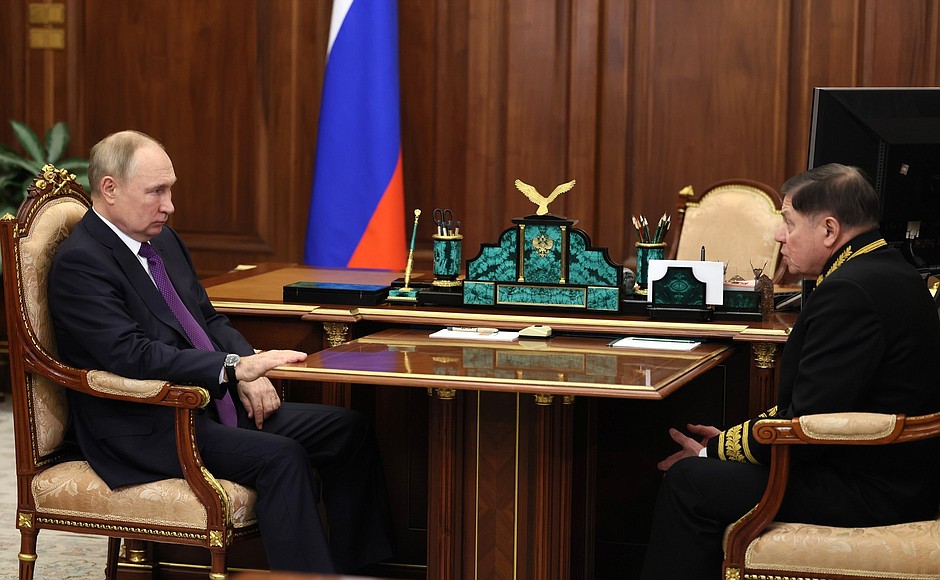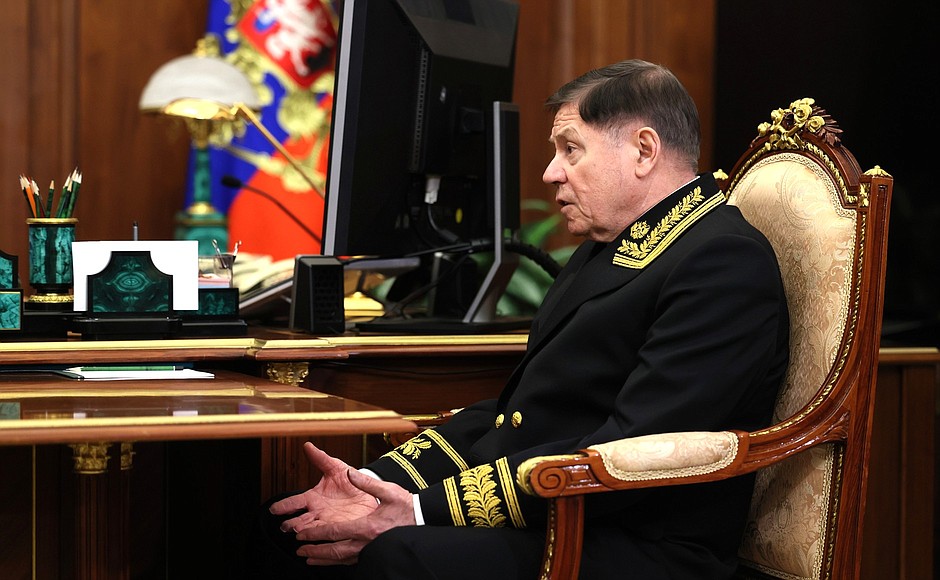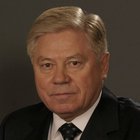Earlier in the day, the President took part in the anniversary session of the 10th National Congress of Judges.
* * *
President of Russia Vladimir Putin: Mr Lebedev, today at the congress we talked about the large, huge number of cases that are tried by the courts. Besides, more than 300 Supreme Court plenary rulings have been issued since the end of 2016, and I believe 49 bills have been submitted, of which 41 laws have been adopted. You have done a lot of work, and it is of high quality.
How is the congress proceeding?
Supreme Court President Vyacheslav Lebedev: Mr President, first, our preparations for the congress were very rational and constructive. During the year, over about six months, I met with all the delegates, the representatives of all the districts, delegates to this congress, and we discussed issues that remained unresolved, gaps where there is uncertainty. Many proposals were submitted, about a thousand. Sometimes they were duplicated, but nevertheless, a lot of proposals were made regarding the improvement of the legislative framework of justice, of law enforcement practice.
During the congress and the day before, when the organising committee met, we had a clear view of the issues that needed to be addressed today. There is a range of issues related to all areas of justice administration.
Of course, today, as you noted, we have a very large workload and an optimisation problem. It is probably impossible to continue to expand the staff today, but it is also impossible for people to wait in line for legal protection. Therefore, we are now working on legislative solutions: draft laws have been introduced to simplify judicial procedures.
Today, digital technologies have been introduced into the judicial system – not just to be introduced soon, but have already been introduced. Moreover, these include public appeals filed with the court through an online procedure for consideration in a remote court. During the pandemic, as you know, we and the Council of Judges made rulings, but we never stopped or postponed justice; no one stood in line while complying with the healthcare rules.
Now we have good, constructive relations with the legislature, so that these issues are addressed quickly. We have now introduced a whole package of draft laws on the use of electronic technologies, up-to-date technologies for hearing cases such as remote proceedings, web conferencing and video conferencing.
We agreed with the centres and with the Government, which supported us, so that people could file paperwork at state and municipal service centres on the principle of a one-stop shop, and this is a very big opportunity for legal action.
The main thing is that today it takes a reasonable time to hear cases. Perhaps we have one of the best positions on deadlines. Over 99 percent – this is the volume, or 39 million cases tried at the first instance last year alone – were heard within a generally reasonable time.
And why is it reasonable? It is established by law. If you violate the deadline, then you will be held responsible: we still have legislation that stipulates compensation for violating reasonable deadlines. The result of the work over the nine months [of 2022] and last year shows that 86 percent of such appeals are upheld when the reasonable time for hearing a case and the reasonable time for the execution of a court decision are violated. There is a problem here, of course, a big one, in execution. We are working on this together with the colleagues who are involved in the execution of court orders.
In general, Mr President, everything is done constructively. The potential in the judiciary, in the judicial system, is good: people work with an understanding of what judges should do.
Vladimir Putin: Good.
As I have already said – experts are all well aware of this – the judge is at the very top of the pyramid, and in the end, the quality of the entire law enforcement system depends on the results of judges’ work. This is where everything converges: the court makes the final decision on any case in any sphere.
In this regard, of course, I would like to once again note the enormous role of the judiciary in Russia and express my hope, as I said at the congress, that our judiciary, headed by the Supreme Court and the Constitutional Court, will continue to develop as in recent years, and will meet the needs of our people to protect their interests, the state and the people themselves, as well as their rights and freedoms in all spheres of life: in the political, economic and criminal law spheres.
Over the last years, the judiciary has really been developing quite actively and doing an excellent job of meeting the demands of the time.
Vyacheslav Lebedev: Thank you, Mr President.
Vladimir Putin: I wish you all the best.
